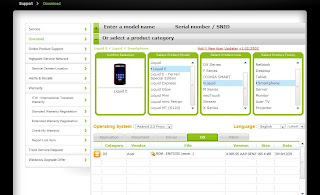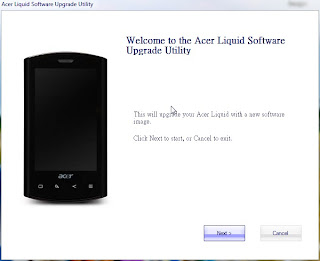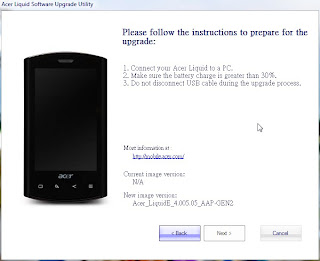4.
BELIEF IN THE
MESSENGERS
Allah has chosen Messenger from among His
own creatures. He has sent all of the Messengers with the same Message,
delivering this Message to all people; "Surely We have sent to each nation
a Messenger (saying) ‘Worship Allah and abandon the
false gods.’" (The Quran 16:36) . These Messenger were sent to
invite their people to worship Allah alone, abandoning all false deities.
Beside the first objective of inviting to the worship of Allah alone, the
Messengers also were commissioned with warning people of the torment in the
next life for those who did not worship Allah alone; as well as delivering glad
tidings to those who worship Allah. By this, mankind will have no excuse on the
Day of Resurrection. Allah the Mighty and Majestic said, "Surely We have sent to each nation a Messenger (saying)
‘Worship Allah and abandon the false gods.’" (The Qur’an 16:36) and:
"We would not punish (a people) until we send a Messenger (to them)."
(The Qur’an 17:15).
The Messengers were worshipers of Allah
whom Allah honored with the position of Prophet hood and Messengership. They
were indeed the greatest men who ever lived and the best example, Allah says
about Nuh (Noah, peace be upon him); "Indeed he
was a great worshiper." (The Quran 17:3) and about Ibrahim, Ishaq
and Yaqub (Abraham, Isaac, and Jacob, peace be upon them): "Recall Our worshipers, Ibrahim, Ishaq and Yaqub, who
were loyal worshipers and well versed in religion." (The Quran 38:45).
Regarding Yusuf (Joseph, peace be upon him): "Surely
he was one of Our chosen worshipers." (The Qur’an 12:24). Regarding
Dawood (David, peace be upon him): "Recall Our
worshiper Dawood, a loyal servant..." (The Qur’an 38:17). Regarding
Sulaiman (Solomon, peace be upon him): "How
excellent a worshiper, indeed he was loyal in repentance to Us." (The
Quran 33:44). Concerning Ayub (Job, peace be upon him): "How excellent a servant." (The Quran 38:44).
Concerning Muhammad (peace be upon him): "Blessed
be He who revealed the Criterion to His worshiper." (The Quran 25:1);
and concerning Isa (Jesus, peace be upon him) Allah said, "He was but a worshiper upon whom We bestowed favors, and We
made him example for the children of Israel." (The Qur’an 43:59).
The Last of all of the Prophet and
Messengers was Muhammad (peace be upon him). He was, in fact, sent for all of
mankind: "Say: O mankind! Surely I am the
Messenger of Allah unto all of you..." (The Qur’an 7:158).
The Legislation that was revealed to
Muhammad (peace be upon him) is the religion of Islam. This is the religion
that Allah is please with for His worshipers. He does not accept from them
other than His religion, saying, "This day I have
perfected your Religion for you, completed My Favor upon you, and have chosen
for you Islam, as your way of life." (The Quran 5:3) and: "Whoever seeks a religion other than Islam, it will
never be accepted from him, and in the Hereafter he will be of the
losers." (The Quran 3:85) and: "Every time a group is cast in (Hell)
its custodians will ask, ‘Did a warner not come to you?’ They will respond,
‘Certainly a warner came to us, but we denied him and said, "Allah never
revealed anything, you have greatly erred."’ And they will say, ‘If we
only listened, or used reason, we would not be among the inhabitants of the
blazing fire."" (The Qur’an 67:8-10).
The Messengers were men, descendants of
Adam (peace be upon him). None of them possessed the qualities of divinity that
would warrant worshipping them, (as nothing is worthy of worship but Allah)
"Their Messengers said to them, ‘We are no
more than human beings like yourselves...’" (The Quran 14:11), and
Allah told Muhammad to, "Say: I am but a human
being like yourselves; it has been revealed to me that your god is one
God." (The Quran 41:6) and "Say: Glory be to my Lord! Am I anything
but a human, a Messenger?" (The Quran 17:93).
It is an essential element of faith in
Islam to believe in all of the Messengers, and that whosoever denied Muhammad,
then he has denied all of the Messengers of Allah (peace be upon them) and he,
therefore, does not have faith in Allah: "And We
have sent you (Muhammad) as a Messenger to Mankind..." (The Quran 5:79)
and: "And Nuh’s people when they
denied the Messengers..." (The Quran 25:37). Allah informs us that
not only did the people of Nuh reject him (peace be upon him), but they
rejected all of the Messengers, because they rejected the institution of
Messengership altogether when they rejected Nuh.
There are no Prophets after Muhammad
(peace be upon him): "...but he is the
Messenger of Allah and the Seal of the Prophets." (The Quran 33:40).
5. Belief in the Hereafter
Among the six major elements of faith in orthodox Islam
is the belief in the Hereafter.
The Last
Hour and its Signs: There are many future events for the earth,
foretold in the Quran and Traditions of Muhammad (peace be upon him). Among
the major events is the arrival of the Dajjal, or the Great Liar, who will
perform miracles so tremendous that most people will believe that he is God. A
great righteous leader known as the Mahdi, who will wage war against the armies s of the Great Liar.
However,the Great Liar will not be defeated until Jesus, son of Mary , return
to the earth to slay him. Some of the other signs of the Last Hour are; the
Beast of the Earth, the reappearance of Gog and Magog, and finally the sunrise
from the west, after which faith will not longer be accepted from those who did
not believe before these signs.
Life in the
Grave: After death, each person will endure a real trial in his
grave. About some who have passed away, the Almighty One says: "The Fire: they are exposed to it morning and
afternoon..." (The Quran 40:46). Allah’s Messenger Muhammad (peace
be upon him) said, "The grave is either a garden from the gardens of
Paradise, or it is a pit from the pits of Hell."
The First
Blowing of the Trumpet: After the duration of the earth’s existence
has ended, Allah will command the angel Israfeel to blow the Trumpet. Upon the
first blowing, all of the inhabitants of the heavens and the earth will fall
unconscious, except for those whom Allah wills otherwise. Then the earth will
be flattened and the mountain ranges will be turned into floating sand dunes.
Then, Allah will command the skies to pour rain for a period of forty days. Then all people who ever lived will
be resurrected from their graves. The process of resurrection begins with the
reformation of each person’s vertebral column base. Reformation continues until
each person is complete in his original earthly form.
The Second
Blowing of the Trumpet: Allah will command Israfeel to blow the
Trumpet for a second time, upon which all people who ever lived will rise from
their graves. Those who had true faith in the Almighty One will say, "This is what the Most Merciful has promised , and the
messengers spoke the truth!" (The Quran 36:53).
The
Gathering: The angels will herd
everyone, bare-foot to the place of Gathering. At the place of Gathering, the sun will be drawn near to
the heads of the people and their sweat will engulf them. Some will be standing
in sweat up to their ankles, some up to their knees or their chests, and still
others will be submerged up to their necks in sweat. The depth of the sweat
will be a result of the deeds which they performed during their earthly life.
The Shade
of the Throne: Some people will
be spared many from the sufferings on the Day of Resurrection under the shade of
Allah’s Throne.
The Beginning of Judgment: When the
conditions become unbearable for people, and their fear increases, they will
ask Allah to allow the Messengers and the Prophet to intercede on their behalf
and to save them from their distress. Each of the Prophets or Messenger will
direct the people to the Prophet who came after them, until they come to
Muhammad (peace be upon him). He will be granted the intercession, after which
Allah will begin the Judgment.
The Scales
upon which the deeds are weighed: The Scales will be erected, and
everyone's deeds will be weighed. These Scales will be real with real pans.
Allah, the Exalted and Glorified, will give the deeds of each creature a
material existence. Good deeds will be placed in one an of the Scale, and evil
deeds in another, as Allah has informed, "And We
shall set up the Scales of Justice on the Day of Resurrection, then none shall be
wronged in any matter. If the weight of a mustard seed exists, We shall
manifest it..." (The Quran 21:47).
The Records
of each person’s deeds: The weighing of deeds will be followed by a
disclosure of each person ‘s record. The one who receives his record in his
right hand will have an easy reckoning. He will return to his family gleaming
with leisure. However, he who receives his record offered to him from behind
his back, in his left hand, will wish only for death on that Day. He will be
thrust into the Fire of Hell.
Judgment:
Then Allah will Judge His creation. He will remind them of their good and evil
deeds. All of what they did will be recorded, though they may have forgotten
it, "Then to their Lord is their return, and He
shall inform them of all that they used to do!" (The Quran 6:108).
Allah’s Messenger Muhammad (peace be upon him) said, "Allah will
bring His believing servant close to Him; put a veil over him; and present his
deeds to him privately - making him acknowledge his sins. Allah will say to
him, ‘Haven’t you done this on this particular day?’ The servant will
acknowledge his sin and feel certain of destruction. The Allah will say, ‘I
have covered your sins during your life, and today I forgive you.’" As for those who disbelieve in Allah, their deeds will
be of no avail: "And We shall turn to whatever deeds they have done, and
We shall render them scattered, floating dust particles." (The Qur’an
25:23). "The parable of those who disbelieve in their Lord is that their
deeds are like ashes upon which the wind blows furiously on a stormy day; they
will not benefit or all from what they have done." (The Quran 14:18).
A disbeliever will receive the benefits from his good deeds in this life, so
when he is resurrected on the Day of Judgment, he will find his book of good
deeds to be blank.
The Pond of
Allah’s Messenger: The
Pond of Allah’s Messenger will be the largest body of water; its water will be
sweeter than honey and whiter than milk; it will be equipped with drinking
utensils as numerous as the stars, to accommodate its large number of visitors.
The length and width of this Pond will be the distance of a month’s journey
each way, and anyone who drinks once from this Pond shall never thirst
again.
The Bridge
that extends over Hell: The Bridge will be extended over the length
of the Fire of Hell, reaching Paradise. Allah’s Messenger Muhammad (peace be
upon him) has described it as thinner than a hair and sharper than a sword.
People will pass over the Bridge at different speeds according to their deeds;
some at the blinking of an eye, some at the speed of quick running horses,
others as running camels, while others will cross at a normal walking pace.
There will also be some who can barely crawl over it. They will be grabbed by
iron hooks and thrust into the Fire of Hell. He who crosses the Bridge shall be
at the threshold of Paradise.
The Plateau
between Paradise and Hell: Those who
cross the Bridge will be assembled at a place between Paradise and Hell. Here
their mutual debts will be settled until they are all accounted for. Then, they
will be permitted to enter the Garden of Paradise.
The
Intercession granted to the Prophets and the Righteous: The Door of
Paradise will first be opened for the Prophet Muhammad (peace be upon him):
"I will be the leader of the children of Adam on the Day of Judgment,
though I do not boast of it. I will be the first to be resurrected from the
grave, though I do not boast of it. I will be the first to turn the handle of
the Door to Paradise, entering it along with the poor of my nation." Allah
will only allow intercession form those to whom He grants it. The first to
intercede is Allah’s Final Messenger Muhammad (peace be upon him). His first
intercession shall take place at the place of the Gathering, where he
intercedes for the Judgment to begin. This is the Great Intercession that Allah
has saved for him. The second form of intercession granted to Allah’s Messenger
Muhammad (peace be upon him) will be to gain permission from Allah for the
people of Paradise to enter it. They will not enter Paradise until he has
interceded for that. Among the forms of intercession that other Prophets share
with the Last Messenger Muhammad (peace be upon him) is to save some people from
Hell who are about to enter it, and to take out of it some people who have
already entered it.
The Eternal Hell Fire: Hell is a pale of
unending torture, existing now, prepared for the arrogant who reject faith in
the Almighty, as well as those sinners who do not repent. If one were to love
in the Fire of Hell for only an instant, he would experience in that instant,
more pain, suffering and torture than he could ever imagine. Allah warns His
creatures, "Therefore I have warned you of the
Flaming Fire." (The Quran 92:14). It is a fire that is
incomparable to the fire of this life. Hell is referred to by Allah as: The
Hell-fire, the unfathomably deep Pit, the fierce blazing Abyss, a place where
the bodies and souls are melted, unceasingly burning, and the consuming Pit."...Scorching wind and scalding water and a shadow of
black smoke, neither cool nor refreshing..." (The Quran 56:41-45) and: " Indeed it throws up sparks (as huge) as
castles." (The Qur’an 77:32) The people of Hell are given:
"...Boiling water to drink, which lacerates their bowels." (The
Quran 47:15) "And if they ask for showers, they will be showered with
water like molten lead which burns their faces..." (The Quran 18:29).
The Eternal
Paradise: Now existing, Paradise is prepared for those who
serve Allah alone, and who are repentant. It is, what no eye has seen and no
ear has heard and that which has never occurred in a human heart. In it are, "Gardens of perpetual bliss - they shall enter them, as
well as the righteous among their fathers, their spouses and their offspring.
And angels shall enter upon them from every gate." (The Quran 13:23)
"...For the righteous is a beautiful place of final return - gardens of
eternity, whose doors will always be open." (The Quran 38:49-50) "In
it are rivers of water, incorruptible; rivers of wine, delicious to those who
drink; and rivers of honey, pure and clear, In it, there are for them all kinds
of fruits, and forgiveness from their Lord." (The Quran 47:15)
Allah has mentioned many other things about Paradise, but most importantly, it
is never ending; and it will be for those whom Allah addresses saying, "I
shall cause my favor to descend upon you, after which I shall never be displeased
with you." And that is the greatest achievement.
6. BELIEF IN THE DIVINE WILL
The last of the six major elements of faith in Islam is the belief in the Divine Will. The Divine Will encompasses all things
and events that occur, whether they be good or evil. Belief in the Divine Will
is not complete unless it contains the following elements:
Belief that Allah’s Knowledge is all
inclusive and Complete, that He is most aware of every creature’s qualities and
innermost feelings, of the results of their actions, as well as what action
they will perform before they perform them, and what actions they may have
performed had He willed them to perform otherwise. He is aware of all of this
without burden, and there is no contradiction between His encompassing Will and
the free will and choice of the creatures.
"He is fully aware of you when He
brings you into being out of dust, and when you are still in your mothers’
wombs." (The Quran 53:32) and "...so that you may come to know that
Allah has power over all things, and that Allah encompasses all things with His
Knowledge." (The Quran 65:12)
Allah has recorded every event that will
ever occur. He has referred to the Preserved Tablet, upon which the happenings
of all of creation are inscribed,
"Know
you not that Allah knows all that is in the heavens and on the earth? Indeed it
is (all) in the Book." (The Quran 22:70)
Paramount to belief that Allah predestined
the outcome of all creatures, is the following Tradition of Allah’s Messenger
Muhammad (peace be upon him):
"The first thing which Allah created
was the Pen. Then He commanded it to write. The Pen asked; ‘My Lord! What shall
I write?’ He said, ‘Write the measure of each thing until the (final)
Hour."
Allah’s Messenger Muhammad (peace be upon
him) said,
"...Whatever befalls you could never
have passed you by, and whatever has missed you could never have befallen you.
The pens have been raised and the scrolls have dried."
All thing that occur do so according to the
Divine Plan. "Did you not know that Allah knows
(all) that is in the heavens and the earth? It is (all) in a record. Surely
that is easy for Allah." (The Quran 22:70)
"No calamity befalls on the earth or
in yourselves but it is inscribed in a Book before We bring it into existence.
Surely, that is easy for Allah." (The Qur’an 57:22)
The Divine Will is both detailed and
general, as for the details, Allah’s Messenger Muhammad (peace be upon him)
described the fetus in the womb and said,
"...He (Allah) sends an angel to it
and commands it to write four words: his sustenance, life span, actions, and
whether he will be blessed or wretched."
Whatever Allah wills, then it shall be.
"Truly, when
He intends a thing, His command is ‘Be’, and it is!" (The Quran 36:82).
His Wisdom is unique in that it may not be
understandable to human intellect. So we believe that He allows evil and
disobedience even though He encourages good from His creatures. It is only due
to His Wisdom, not a frustration of His Will, that one will disobey and commit
evil acts.
Allah created all things, be they matter
or events,
"Allah has
created you and what you do." (The Quran 37:96)
"All praise is due to Allah, who
created the heavens and the earth, the brought into being deep darkness as well
as light." (The Quran 6:1)
"O mankind! Fear your Lord who
created you from a single person (Adam), and out of him He created his mate
(Eve), and out of the two, scattered a multitude of men and women." (The
Quran 4:1)
Human beings have some control over their
actions and they have a limited type of will. The Will of Allah is not
frustrated by the fact that He gave humans the freedom to choose.
"...To
whomever of you wills to follow the Straight Path. But you have no will unless
Allah, the Lord of the Universe, so wills." (The Quran 81:28-9)
Allah’s Messenger Muhammad (peace be upon
him) said,
"He who is from the successful, then
the deeds of the successful are made easy for him."























